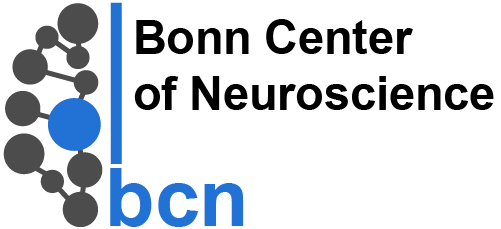Professor Dr. Dr. Eva-Christina Schulte is now leading the “Genomics and Epigenomics” section at the Clinic for Psychiatry and Psychotherapy at the University Hospital Bonn (UKB). As part of her professorship, she aims to establish a clinic for genetic diagnostics of mental disorders. Additionally, she intends to make data and biobanks from clinical practice available for research on a large scale. In collaboration with the Institute of Human Genetics at UKB, Professor Schulte is also working towards a better understanding of the biological effects of genetic factors in schizophrenia and bipolar disorder, with the ultimate goal of developing new therapeutic options.
Schizophrenia and bipolar disorder, also known as manic-depressive disorder, have a high degree of heritability. “Genetic factors play a significant role in the development of these two mental disorders,” says Prof. Schulte. Therefore, she aims to integrate genetic diagnostics into clinical practice and establish a corresponding clinic at the Clinic for Psychiatry and Psychotherapy at UKB. “The high genetic burden is evident in the increased occurrence of affected family members and early onset of the disease,” says Prof. Schulte. “Genetic diagnostics are likely underutilized in the context of mental disorders, even though they can provide a better understanding of the disease and potentially lead to more targeted therapeutic options in some cases.” As psychiatric symptoms can also be part of rare genetic conditions that affect not only the mind, she strives to collaborate closely with the Center for Rare Diseases (ZSEB) at UKB.
Bridging the Gap between Clinic and Research
Prof. Schulte aims to further explore the genetic causes and relationships of mental disorders: “However, this requires a large number of samples from different patients. Mental disorders are generally complex genetic diseases, meaning that multiple genetic alterations collectively contribute to an individual’s disease risk.” Thus, human genetics relies on collecting large amounts of data. Prof. Schulte was involved in establishing the Munich Health Biobank (MMHB) at the psychiatric clinic of Ludwig-Maximilians-Universität (LMU) in Munich. She also envisions creating a similar biobank at UKB: “In clinical practice, many disease-related data are generated, which, while considering data protection, should be reused for research. It’s a real treasure trove!”
In functional genomics, Prof. Schulte explores gene functions and their involvement in biochemical, cellular, and physiological processes. “Over the past 15 years, many genes related to mental disorders have been successfully identified. However, we often do not yet know what these genetic risk factors actually biologically do,” she notes. Due to their multitude, it is challenging to determine the specific effects of each individual genetic alteration. Therefore, Prof. Schulte utilizes high-throughput screenings to analyze genome sequences systematically and in parallel. She also investigates lipid profiles, as lipids constitute a significant portion of brain tissue and are a key component of cell membranes. “In addition to early developmental processes in the central nervous system, it is believed that disruptions in communication between neurons underlie many mental disease processes,” says Prof. Schulte. To enable early and reliable detection of these disorders, she is interested in biomarkers. Recently, as a researcher at the LMU Institute of Psychiatric Phenomics and Genomics, she, along with colleagues from LMU University Hospital, identified a lipid profile related to lipid metabolism in blood samples from study participants, indicating a predisposition to schizophrenia.
Optimal Networking at the Bonn Venusberg Campus
Prof. Schulte’s motivation for moving from Munich to Bonn stems from the opportunity to integrate top-level psychiatric and human genetic research at UKB into clinical practice. “I want to bring this expertise into everyday clinical care,” says the doctoral specialist in psychiatry and psychotherapy and specialist in neurology, who also holds a second doctorate in human genetics. Her academic training has taken her to various locations in the United States, including Stanford, Harvard, as well as Oxford, Hong Kong, and Switzerland. Before joining UKB, she spent half a year at the Wellcome Sanger Institute, Europe’s largest genetics research institute, near Cambridge, United Kingdom.
